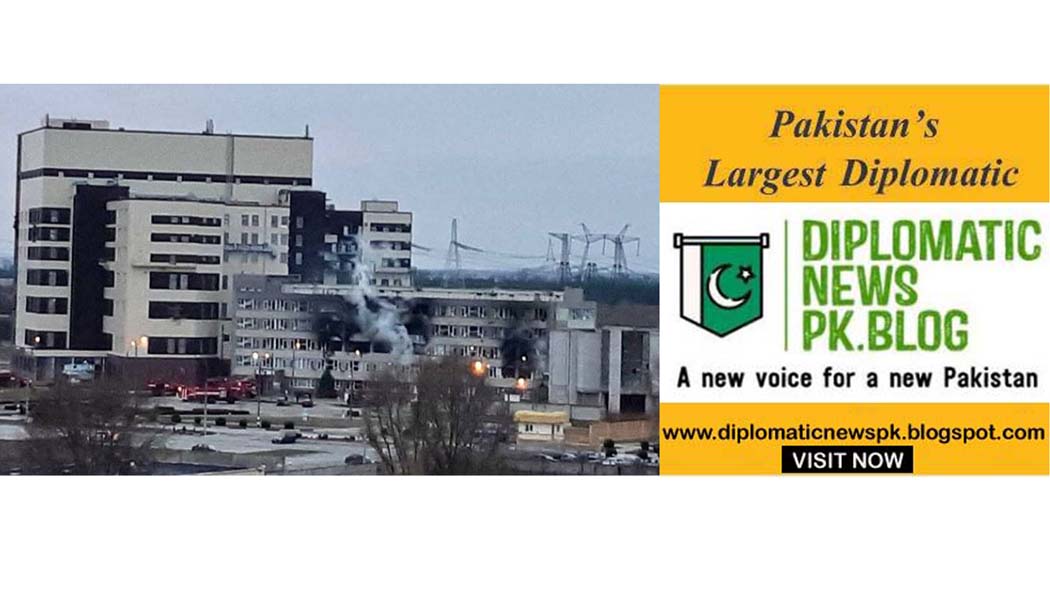MOSCOW, APR 5: Russia has lambasted “another attempt of shameless interference” by the United States in the internal affairs of Pakistan, adding that it sought to punish a “disobedient” Imran Khan.
In a statement, Russian Ministry of Foreign Affairs Spokesperson Maria Zakharova said Russia had noted that President Dr Arif Alvi dissolved the National Assembly on April 3 on the prime minister’s advice as well as the events preceding it. “Immediately after the announcement of the working visit of Imran Khan to Moscow on February 23-24 this year, the Americans and their Western associates began to exert rude pressure on the prime minister, demanding an ultimatum to cancel the trip,” she said.
“When he nevertheless came to us, [Lu] called the Pakistani ambassador in Washington and demanded that the visit be immediately interrupted, which was also rejected,” she stated.
“According to the Pakistani media, on March 7 this year, in a conversation with Pakistani Ambassador Asad Majid, a high-ranking American official (presumably the same Donald Lu) sharply condemned the balanced reaction of the Pakistani leadership to the events in Ukraine and made it clear that partnerships with the United States are possible only if Imran Khan is removed from power,” Zakharova said.
The Russian official said that further development of the situation left no doubt that the US “decided to punish the ‘disobedient’ Imran Khan”, noting how lawmakers from within the PTI switched sides to the opposition while the no-confidence vote was submitted to Parliament.
“This is another attempt of shameless US interference in the internal affairs of an independent state for its own selfish purposes. The above facts eloquently testify to this,” Zakharova said.
“The [Pakistan] prime minister himself has repeatedly stated that the conspiracy against him was inspired and financed from abroad. We hope that Pakistani voters will be informed about these circumstances when they come to the elections, which should be held within 90 days after the dissolution of the National Assembly,” she said.
The statement from Russia’s foreign ministry comes after PM Imran named US Assistant Secretary of State for Central and South Asia Donald Lu as the official who made “threatening remarks” about his regime in a letter, which the premier had brandished during a public rally in Islamabad last month.
Last month, the National Security Committee, which includes all services chiefs, had decided to issue a “strong demarche” over the letter, terming it “blatant interference in the internal affairs of Pakistan”.
Imran has alleged that the no-confidence motion against him is part of the “foreign conspiracy” to oust him from power.
However, the US State Department said claims of a US involvement in the no-trust move against Imran Khan were just allegations without any truth. In a recent interview, Donald Lu, the US diplomat who allegedly made the threat to Pakistan’s ambassador, evaded the question when asked about the regime change in Pakistan.
During the interview, on a question about his conversation with Pakistan’s ambassador in Washington, the interviewer asked: “Imran Khan seems to suggest that you had a conversation with the Pakistani ambassador in the US and told him that if Imran Khan survives the no-confidence motion, Pakistan is in trouble and the US wont forgive Pakistan. Any response?”
Donald Lu avoided direct reply and said: “We are following developments in Pakistan, and we respect and support Pakistan’s constitutional process and the rule of law.”
Asked whether he had had such a conversation, the US official skipped the question again, simply saying: “That’s all I have for you on that question.”
On April 3, NA Deputy Speaker Qasim Khan Suri had thrown out the no-trust motion against Imran, declaring that “circumstances show there is a nexus between the no-confidence motion, foreign intervention and the activities of the state’s representatives deputed to Pakistan”.
Imran had visited Moscow in February on a two-day trip which focused primarily on energy cooperation. However, his visit raised eyebrows as it coincided with Russia’s military onslaught of Ukraine.
At the time, the government said it had consulted all concerned quarters before going ahead with the trip, which had been scheduled months in advance.
During his trip, Imran had conveyed to Russian President Vladimir Putin that he regretted the situation developing between Russia and Ukraine, adding that Islamabad had hoped that military conflict could be averted through a diplomatic solution.
He had stressed that conflict was not in anyone’s interest and that developing countries were always hardest hit economically in case of conflict. “He underlined Pakistan’s belief that disputes should be resolved through dialogue and diplomacy,” said a communiqué issued after a meeting between the two leaders.
----------------------------------
Courtesy Dawn News
--------------




